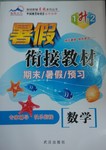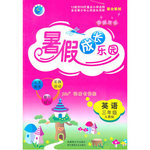题目内容
Is there a magic cutoff period when offspring become accountable for their own actions? Is there a wonderful moment when parents can become spectators (旁观者) in the lives of their children and shrug, "It' s their life," and feel nothing?
When I was in my twenties, I stood in a hospital corridor waiting for doctors to put a few stitches in my son' s head. I was asked, "When do you stop worrying?" A nurse said, "When they get out of the accident stage." My mother just smiled faintly and said nothing.
When I was in my thirties, I sat on a little chair in a classroom and heard how one of my children talked incessantly, disrupted (打断) the class, and was headed for a career making license plates. As if to read my mind, a teacher said, "Don't worry. They all go through this stage, and then you can sit back, relax, and enjoy them." My mother listened and said nothing.
When I was in my forties, I spent a lifetime waiting for the phone to ring and the cars to come home, the front door to open.
My friends said that when my kids got married I could stop worrying and lead my own life. I wanted to believe that, but I was haunted by my mother' s wan ( 淡淡的 ) smile and her occasional words, "You look pale. Are you all right? Call me the minute you get home."
Can it be that parents are sentenced to a lifetime of worry? Is concern for one another handed down like a torch to blaze the trail of human frailties and the fears of the unknown? Is concern a curse? Or is it a virtue that elevates us to the highest form of life?
One of my children became quite irritable recently, saying to me, "Where were you? I' ve been calling for three days, and no one answered. I was worried! ! !"
I smiled a wan smile.
1.What can we know about the author’s mother from the passage?
A. She seems to laugh at the author.
B. She is not concerned about the author.
C. She has a thorough understanding of the author.
D. She tries to give the author some encouragement.
2.What did the author do in her forties?
A. She was less concerned about her children.
B. She couldn't stop worrying about her children.
C. She would like her children to see her often.
D. She became more patient with her children.
3.Why did the author smile a wan smile at the end of the passage?
A. She wanted to learn from her mother.
B. She stopped worrying about her children at last.
C. She succeeded in tricking her children.
D. She got a kind of satisfaction from her child's concern.
4.The main purpose of the passage is to tell us that ______.
A. the concern between parents and children is natural
B. parents’ love for their children is selfless
C. parents show more concern for their children
D. parents will worry about their children all their lives
C
D
A
C
【解析】

 暑假衔接教材期末暑假预习武汉出版社系列答案
暑假衔接教材期末暑假预习武汉出版社系列答案 假期作业暑假成长乐园新疆青少年出版社系列答案
假期作业暑假成长乐园新疆青少年出版社系列答案—Ambulance(急救),please. —Ambulance.________1.
—I'm in a phone box outside No. 30,Nanjing road. _____________2.
—There,s been an accident. A man has been run over. He ’ s losing a lot of blood. Please send an ambulance at once. —Is there a doctor there?
—No, there' s only me. The driver didn't stop__________. 3.
—Yes. Don' t move the patient.____________ 4. Keep the patient warm, but don ’ t give him anything to eat or drink. OK?
—Right, please urryt
—Don ’ t worry. ______5.
|
||||
|
E. Try to stop bleeding. |
||||
|
F. Where is the patient? |
||||
|
G. The ambulance is on its way now. |
Long,long time ago,there was a mountain.At the top of the mountain _______ ,in which an old monk used to tell stories.
|
A.a temple stood |
B.is there a temple |
C.stood a temple |
D.a temple was there |